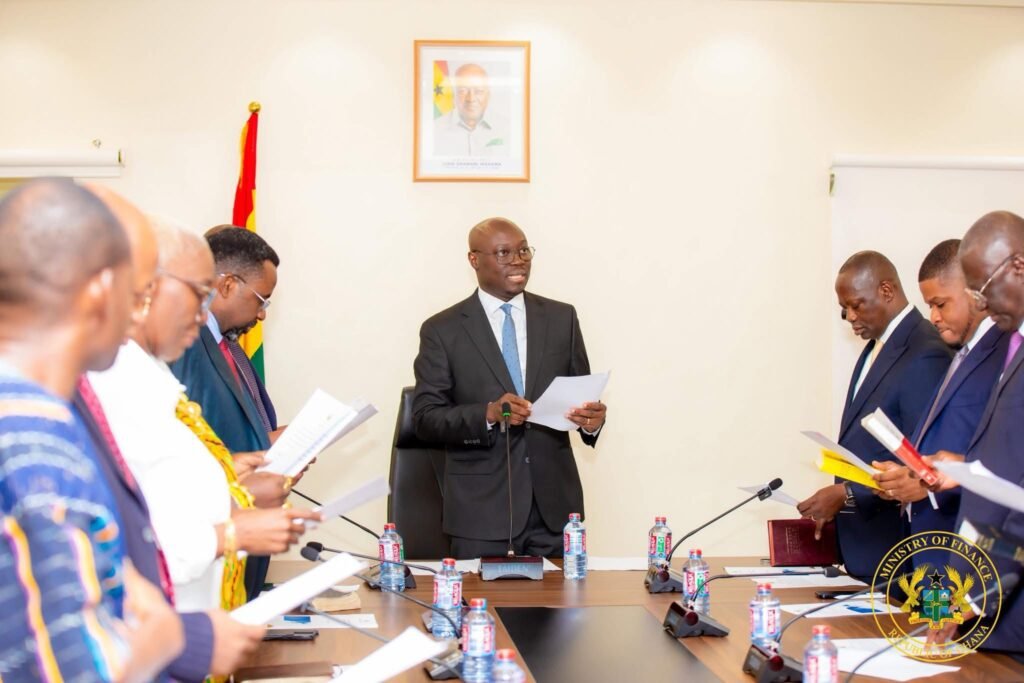Security consultant Richard Kumadoe has described the GoldBod initiative as a potentially transformative reform in Ghana’s gold mining sector but stressed that its success will depend on how effectively it is implemented.
Writing on the prospects and challenges of the policy, Kumadoe observed that GoldBod, introduced by the Mahama administration, could serve as a regulatory authority to streamline activities in gold mining and ensure stronger compliance regimes.
According to him, one of the central priorities of the initiative is to establish a single service platform for the purchase, sale, and export of gold in Ghana. He argued that such a unified vehicle would help sanitize a sector that has long been characterized by fragmented oversight and unregulated transactions.
“The GoldBod initiative can be perfectly said to be a regulatory authority in the area of gold mining activities and compliance regimes in Ghana”.
Security Consultant
Kumadoe noted that the platform is intended to create a more suitable environment for mining activities in line with existing mining laws and approval procedures. The initiative, he added, also places strong emphasis on responsible mining techniques.
It seeks to ensure that appropriate mining tools and equipment are used in designated zones across the country, with offenders facing sanctions under the law.

He explained that the source of gold purchases under GoldBod will largely be small-scale and responsible community mining companies.
“Over time, gold produced outside of these spheres will be tagged and flanked as inappropriate, and penalties will be applied to the companies and individuals involved”.
Security Consultant
Meeting International and Regional Standards
Kumadoe further pointed out that meeting international and regional standards in gold purchase and exportation is another priority of the initiative. He stated that the GoldBod taskforce and the relevant authorities will work hard to ensure Ghana meets all established requirements at both local and international levels.
In his view, this would not only strengthen Ghana’s reputation in the global gold trade but also create economic opportunities for the country. Another critical role of GoldBod, according to him, is the training of miners.
By providing education at various levels and supporting the acquisition of appropriate tools, technologies, and equipment, the initiative can help miners adopt safer and more sustainable practices. He underscored that such capacity building would be key to ensuring the long-term health of Ghana’s mining industry.
While acknowledging the short-term gains that GoldBod could generate, Kumadoe stressed that the long-term vision should be to create a safer and more sustainable mining environment. He emphasized the need to balance profitability with environmental and social responsibility.
“The long-term desire and commitment is to ensure a safer gold mining atmosphere in Ghana, where friendly ecosystem, cleaner environment, and profitability do not override the national agenda of protecting water bodies, preserving green farming communities, and avoiding unsafe mining practices and processes that destroy human lives”.
Security Consultant
Call to Action
Kumadoe concluded his reflection with a message of encouragement to the GoldBod taskforce and the authorities. “We wish the GoldBod taskforce and the authority the best wishes and pray it works well in the greater interest of the State, Ghana. All the best, guys,” he stated.

Despite the optimism, the GoldBod initiative has sparked debate among industry watchers. The law establishing it gives the body the mandate to purchase at least 20 percent of the output from large-scale mining companies, while also serving as the sole assayer and buyer of all gold produced by small-scale mining entities.
While some see this as a plausible mechanism to centralize gold trading and curb smuggling, others have expressed concerns that the lack of a robust traceability system could undermine the initiative.
Critics argue that without effective measures to track the origin of gold, GoldBod risks being used to launder illegally mined gold under the guise of formal purchases.
This, they caution, could weaken the very reforms the initiative is intended to strengthen. Some experts have urged the government to invest in advanced traceability technologies and robust monitoring systems to prevent abuses.

Nonetheless, the initiative represents one of the boldest attempts yet to bring order to Ghana’s gold mining sector, particularly in the small-scale domain. With gold remaining one of Ghana’s most valuable exports and a key driver of the economy, the stakes are high.
Whether GoldBod succeeds in reshaping the sector into one that is profitable, responsible, and sustainable will largely depend on the strength of its implementation and the political will to enforce its regulations without fear or favor.
READ ALSO: Bawumia Urges NPP Delegates to Retain Him as Flagbearer



















